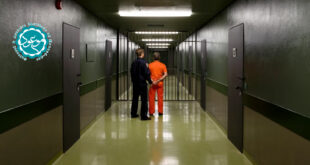The Islamic Cultural Center of Fresno (city of California) issued a statement this week denouncing a statement from the highest ranking religious authority in Saudi Arabia, Shaykh Abdul Aziz al-Shaykh, who said Iranians are not Muslims because they are “descendants of Majus” – a term that refers to Zoroastrians, a monotheistic religion predating Christianity and Islam that was the dominant religion in Persia before Arab conquest.
Full statement of the Islamic Cultural Center of Fresno:
Earlier this week, the highest ranking religious authority in Saudi Arabia, Shaykh Abdul Aziz al-Shaykh, declared that Iranians are not Muslims because they are “…descendants of Majus.” Majus is a term that refers to Zoroastrians which is a monotheistic religion predating Christianity and Islam and was the dominant religion in Persia before the Arab conquest. In responding to an official Iranian statement calling on Saudi Arabia to increase safety measures to limit the possibility of injury and death during the annual Hajj pilgrimage, al-Shaykh stated that it “…was not surprising…” because “…we must understand they are not Muslims, for they are the descendants of Majus, and their enmity toward Muslims, especially the Sunnis, is very old.”
It is important to note that last year alone, more than 2400 people were killed [some reports say more than 7000 killed] in a stampede and more than 100 people were killed in a crane collapse. Of those killed, about 600 were from Iran.
There are many points to make in response. First, in al-Shaykh’s condemnation of Iranians, through his language and intent, he also demonized the entire honorable faith of the Zoroastrian people. In his ignorance, he believes that it is dishonorable that Iranians are decedents of the Zoroastrian people. However, it is a fact of history and by no means a label of disrespect.
Second, Persia, what is modern-day Iran, has produced the majority of the world’s Muslim scholars, including some of the most respected and honored Sunni scholars, including:
**Imam al-Bukhari, Imam Muslim, Abu Dawood, at-Tirmidhi, ibn Majah and an-Nasa’i (the authors of six canonical and most well respected collections of Sunni Hadith literature in history)
**Abu Hanifa (the founder of the Sunni Hanafi school of thought)
**al-Tabari and ar-Razi (authors of two of the most famous Sunni commentaries of the Holy Qur’an in history)
**Imam al-Ghazali (the most famous Muslim philosopher in history)
**Hakim an-Naishaburi (author of Mustadrak as-Sahihain, a work of Hadith literature of those statements not found in the Sahih Bukhari or Sahih Muslim)
**al-Juwaini (an 11th century Imam of Makkah and Madina)
**al-Khawarizmi (the founder of algebra and algorithms) and the list goes on and on.
In fact, just a cursory reading of Sunni scholars from Iran would lead one to find a treasure trove of thousands of beautiful minds who have contributed to the world of Islamic scholarship, not to mention those Sunni-Iranian scholars who made advancements in the disciplines of medicine, mathematics, astronomy, and invention.
The comments by the Saudi cleric are another example of hatred spewed by those espousing the ideology of Wahhabism, the official state creed of Saudi Arabia and a literalist-intolerant ideology born in the desert of 19th Century Arabia which deems non-Muslims and Muslims of differing schools of thought as inferior and, in some cases, worthy of death.
This brand of hatred has spawned some of the ugliest forms of terrorism in recent history which have manifested in those groups who follow the same pattern of ideals as al-Qaeda, the Taliban, Boko Haram, and ISIS, among others.
This deplorable ideology is responsible for numerous attacks throughout the world, including attacks on Shi’a Muslims and their holy places on a more-than-monthly basis in the past decade.
The extremism and hatred of Wahhabism, and those who adhere of its doctrines, have been busy wreaking havoc from 2000-2014. More than 100,000 people were killed by terrorism just in five countries which include Iraq, Syria, Afghanistan, Pakistan, and Nigeria. (Daily Mail 2015) The past two years have also seen tens of thousands more deaths in those countries.
The Saudi cleric’s statement cannot be taken lightly as his condemnation of Iranians, and all Shi’a which account for 20 percent of the world’s 1.8 billion Muslims, as non-Muslims is not just a theological viewpoint, but a dehumanizing call to eradicate our world of all those who do not agree with their ideology.
It is a dangerous ideology, and it is not limited to those enacting violence on other people. It is found in the books that they sponsor and distribute throughout the world. It is found in their teachings from the whiteboards in the classrooms, in the message shared to college Muslim organizations and to the pulpits in their mosques, including using their sermons from the pulpit to call for the curse of God upon Christians, Jews and the Shi’a.
It can be found in their ongoing war against culture and heritage in their destruction of holy sites, such as the graveyard al-Baqi’ and the home of the Prophet Muhammad (peace be upon him), as well as the destruction of artifacts and statues in museums. This same Saudi cleric also called upon the destruction of all churches in the Middle Eastern region in 2012. It is not always manifested in violence, but it is rooted in bigotry and hatred.
The Islamic Cultural Center of Fresno calls upon all good-willed people of the world to reject any and all forms of dehumanization and hatred. We encourage those of different schools of thought within the Muslim world, as well as those of other faiths, to come together and work to find peace, unity and common good. We cannot, in good faith, sit silent as one of America’s strongest allies is free to teach and propagate a violent path while committing and inspiring others to commit atrocities throughout the world while ironically and hypocritically holding the position of the Chair of a panel of independent experts in the UN Human Rights Council.
We invite you to join us in this condemnation by sharing this statement with your contacts. It is important to discuss this problematic rhetoric and bring to attention the consequences of this destructive ideology.
 Mouood Mouood English Edition
Mouood Mouood English Edition




